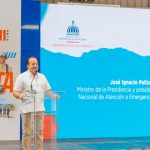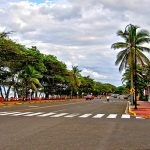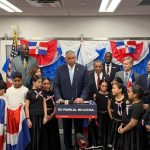Weakness in reading and mathematics still an obstacle for the Dominican Republic

National Territory—Children and adolescents continue to present deficiencies in comprehensive reading and mathematics, which represent an obstacle to their progress and the sustainable development of the Dominican Republic.
This was recognized yesterday by the president of Acción Empresarial por la Educación (EDUCA), Susana Martínez Nadal, at the opening of the 28th Edition of the 2Congreso Internacional de Educación Aprendo: La Transformación Possible. She said that since the implementation of the 4% of GDP for education materialized in 2013, there have been significant advances in the structural aspects of Dominican education.
However, Martinez affirmed that one cannot fall into complacency and that it must be recognized that the improvement registered is minimal compared to the accumulated effort and the commitment of Dominican society to education.
Thanks to the support of the Ministry of Education (Minerd) and the National Institute for Teacher Education and Training (INAFOCAM), said Martínez, dozens of private companies have been able to come together in a space where ideas, experiences, and will converge to reflect on and act on strengthening education.
We need to reflect and act to strengthen education in our country.
For his part, the Minister of Education, Ángel Hernández, stated that to guarantee more significant learning opportunities in the classrooms of public schools, it is vital to focus on the responsibility of all the actors in the education system.

















Whom teaches the teacher ?
The DR needs to start paying their teachers a respectable living wage. To teach in the DR is like taking a vow of poverty and who wants to do that?
I have unfortunately had to visit our children’s school on several occasions to clarify certain teaching points that were being taught incorrectly. Mostly in math and geography and natural sciences. Most of the time the teachers are overloaded with too many students and assignments. You’d be hard pressed to find a school that covers more than 50% of the material in the text books that are a mandatory purchase. They seem more concerned with uniforms and hairstyles that might be considered too african in apperance.